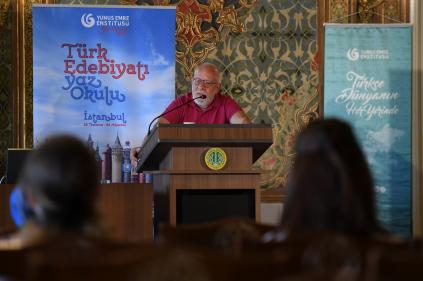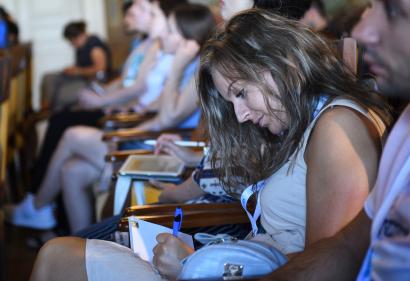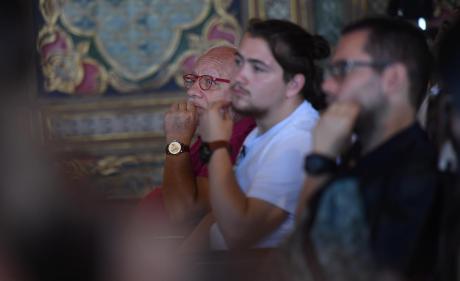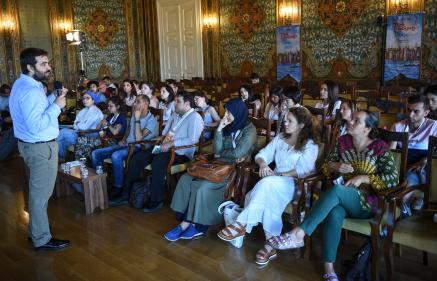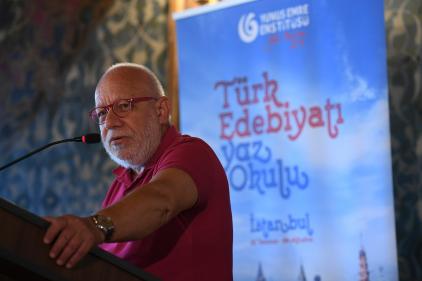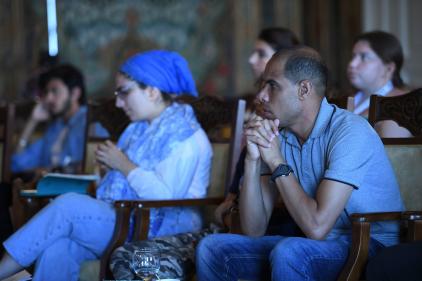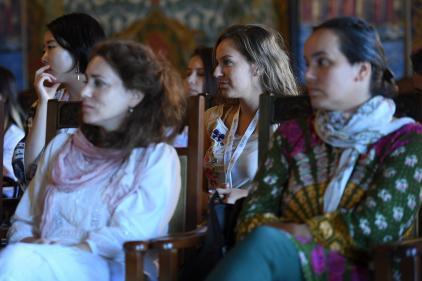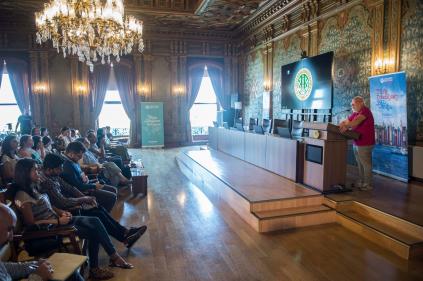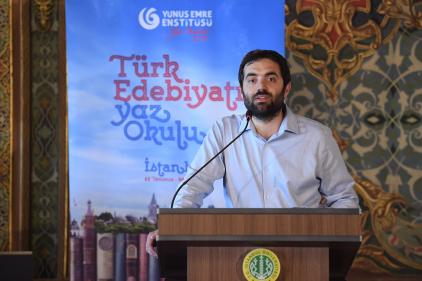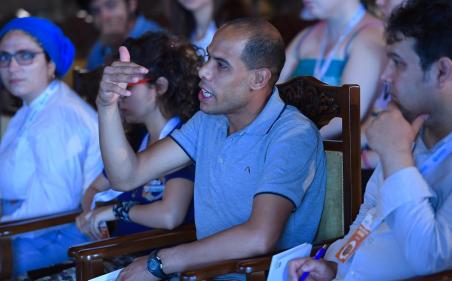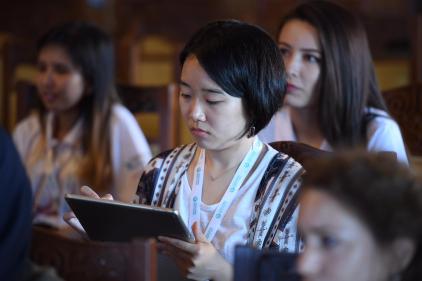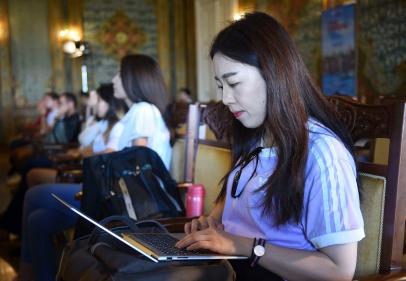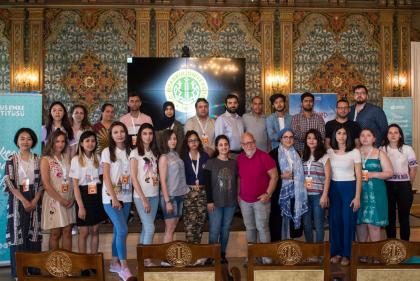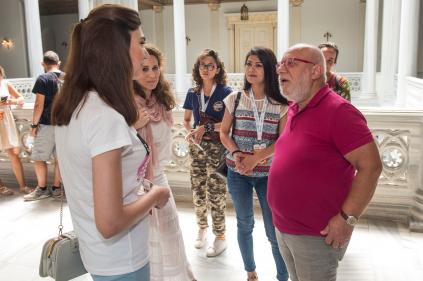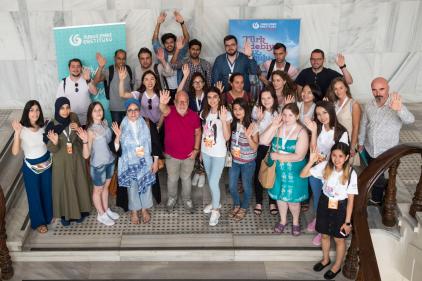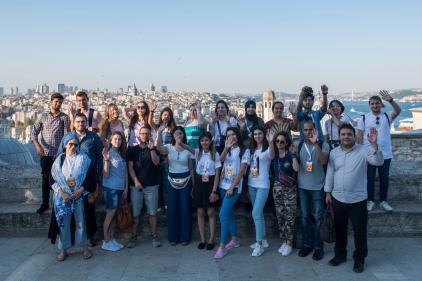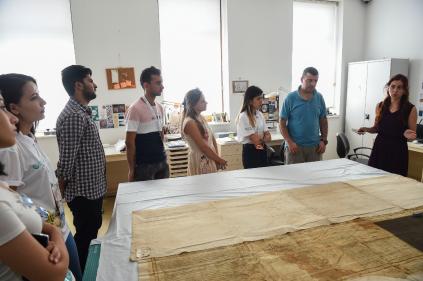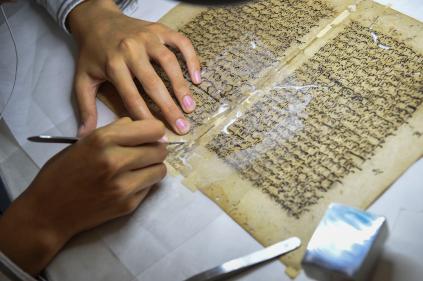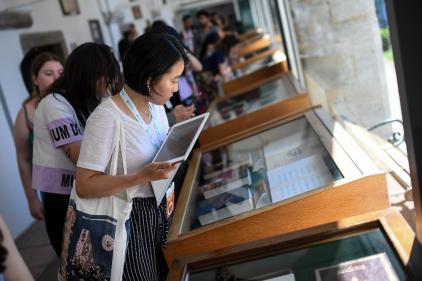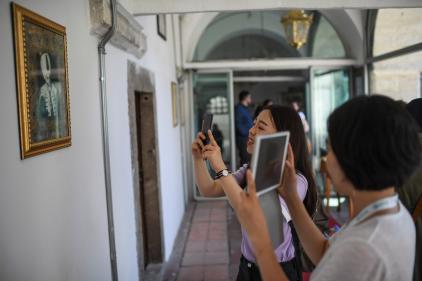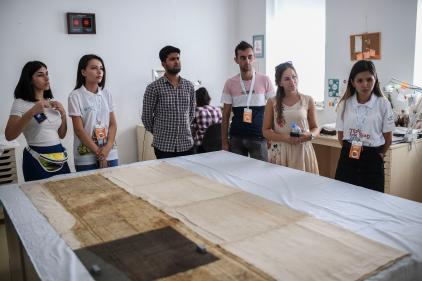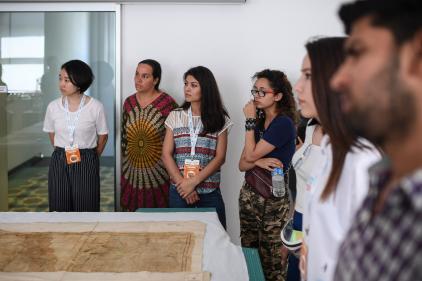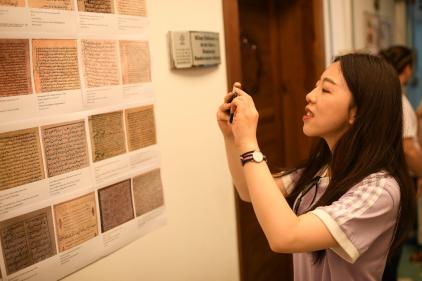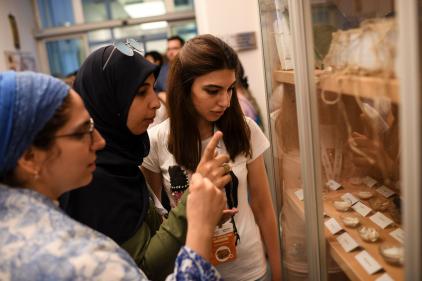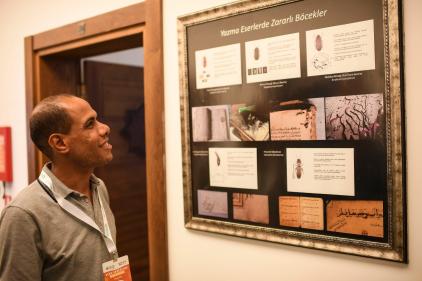"Authorship is a voyage of joy"
The Turkish Literature Summer School continues at the superb and elite cultural circles in Istanbul. The Turkish Literature Summer School program launched by Yunus Emre Institute to ensure that the foreign participants most of whom are attending postgraduate programs in the field of Turkology and translation learn about Turkish and Turkish literature contains seminars, courses and workshops for participants to meet prominent writers, poets and academics of the Turkish literature.
The Turkish Literature Summer School took start at Ahmet Hamdi Tanpınar Literature Museum Library (Procession Kiosk). On its second day, one of the leading writers of modern Turkish, Mario Levi, and Dr. Mert Öksüz delivered lectures at İstanbul University's Rectorate Building (Doctorate Hall).
Speaking at the lecture entitled "Literature and Life," Dr. Mert Öksüz, a faculty member at Karamanoğlu Mehmet Bey University, noted that the topic of literature and life is quite comprehensive when it is not limited with date or genre. "We cannot cover such a vast subject even if we talk about it for years. For this reason, I will make quotations mostly from Turkish literature and talk about them," he said.
Quoting from the works of Stendhal, Edward Morgan Forster, Namık Kemal, Ahmet Haşim, Orhan Pamuk, Necip Fazıl Kısakürek and Yunus Emre, Öksüz evaluated their views on life and literature.
Underlining that the discussions on life and literature tend to be made within the context of the concepts of artificial and natural in Turkish literature, Öksüz said: "We, all, live the life as what we assume it to be in the eyes of the other. Therefore, the experiences of other people about life are very precious to us as they are the only thing that shows us that what we live is actually life. Without it, you cannot be sure that what you live is life."
Following Dr. Mert Öksüz's lecture on "Literature and Life," Mario Levi, one of the living novelists of Turkish, talked about his life as a writer, describing his experiences in authorship to the participants of the Turkish Literature Summer School.
In his lecture entitled "Mario Levi's World and Istanbul," Levi indicated that his ancestors migrated from Andalusia to the Ottoman lands in 1490s, and then, to Istanbul, and he has been working to describe the story of this migration in a novel for several months. "I cannot describe how I have been researching. I examine Turkish, French, Spanish and English texts. There are stories that I could find," he said.
"When I started to know myself in childhood, I learned three languages simultaneously. That is, I am trilingual writer," Levi said, noting that he learned Turkish from his parents, French from his grandfather and Ladino from his grandmother. Levi noted that his foreign language was English while Turkish, French and Spanish are his native languages.
When he was attending the Department of French Language and Literature of the Faculty of Letters at İstanbul University, his ideal was not to become a writer. "I loved literature, and I was a good reader. I was successful only with literature in high school. My dream was to attend the faculty of medicine and became a physician, but I had to settle with the faculty of letters," he said.
"There is territory to discover"
Levi noted that writers seek to discover the existing truth. "We don't create anything out of nothing. What we tell already exists. We just try to discover it. Authorship is a voyage of joy, and there is still uncharted territory to discover in our literature. Perhaps, we, as writers, try to see what other insistently fail to see. What matters in literature is to have the courage to ask questions, and even, to call on readers to ask questions. When I said, 'There is still territory to discover,' I didn't mean, 'There are still lots of topics to narrate.' No, there is no topic to narrate. The writer hopefuls should not aspire to find a 'novel' topic because there is no novel topic. But with uncharted territory, I refer to the writer himself/herself. It is his/her courage to assert himself/herself," he said.

